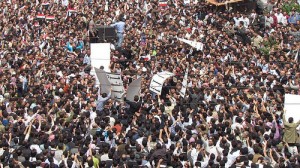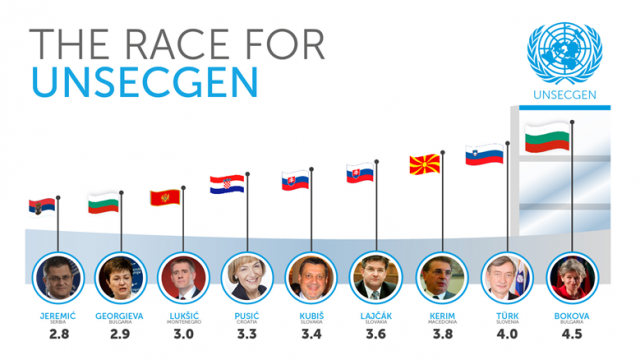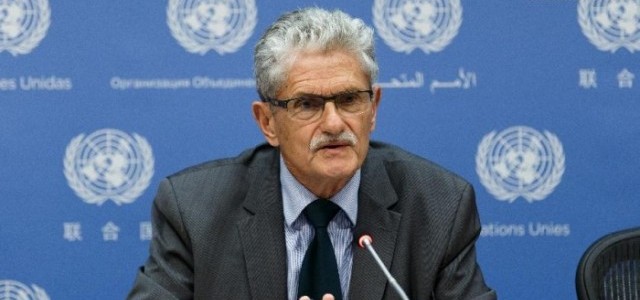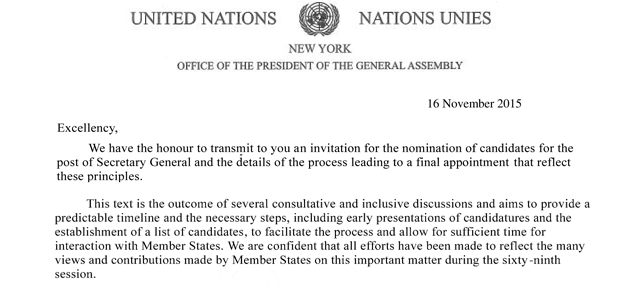The UN General Assembly will elect 15 members to the Human Rights Council on 20 May. Nine of the candidates — Benin, Botswana, Burkina Faso, the Republic of Congo from the African group, Austria and Italy from Western Europe, and India, Indonesia and the Philippines from Asia — are expected to win their seats easily. The remaining six seats are up for grabs among eight candidates, with hopes by some that yet another candidate, from Asia, will jump into the mix.
The African and Western European slates are closed, with the same number of candidates standing for election as there are open seats. Chile, Costa Rica, Nicaragua and Peru are competing for three Latin American seats, while the two Eastern European seats are being contested by the Czech Republic, Georgia and Romania.

India, Indonesia, the Philippines and Syria are the currently endorsed candidates for the Asian regional seats, with the first three considered likely winners. But the condemnation of Syria last week by the Human Rights Council over its crackdown on pro-democracy demonstrators has prompted an international campaign to find another Asian candidate to offer UN members an alternative to Syria.
“We are fighting a battle, we are engaged in a combat” to stop Syria, said the French government’s human rights ambassador of the campaign which has highlighted the growing international tensions with Syria.
…
France, the United States, Britain and their allies are looking for an Asian nation to challenge Syria’s candidacy or to get other countries to vote against it.
This is not merely a Western effort. Arab states are coming up pressure from several independent campaigns in the Middle East, Africa and worldwide to reject Syria’s candidacy. Turtle Bay reporter Colum Lynch reports that last week, a letter from “more than 30 Asian, African, and Western human rights organizations have launched a campaign aimed at embarrassing the Asia Group into ditching Syria.”
Their message may be getting through.
According to diplomatic sources here, there has been increased pressure on Syria, mostly from Arab countries, urging it to withdraw its candidacy. But so far the Syrians remain adamant.
If eventually Syria pulls out on its own volition, the Asian Group is likely to nominate Kuwait in place of Syria.
…
Speaking on condition of anonymity, one diplomatic source told IPS that Kuwait will not challenge Syria and has no plans to raise the matter directly with Syria either.
“But I gather they are ready to step forward, if Syria withdraws. I suspect these efforts (by the Arabs) will probably pay off especially as the situation in Syria is becoming increasingly more difficult,” he pointed out.
Within the Asian group, members of the Arab League are also being lobbied hard. A dozen Arab human rights groups have called on the head of the Arab League, Amr Moussa, “to publicly denounce Syria’s candidacy.” I wouldn’t hold my breath.
An Arab League official, speaking on condition of anonymity because he is not authorized to comment on such issues, said the League cannot take action against Syria or block its nomination for the Council because it is a sovereign country. The official said the issue might be discussed in the coming meeting of the Arab foreign ministers expected next month.
The election will take place on 20 May and candidates, even those endorsed as part of a close slate, will need to secure 97 votes in a secret ballot vote of the General Assembly to secure their seats. Those opposed to Syria are hoping that as a last resort that should the slate remain closed, Syria will fail to secure the necessary votes. Forcing open the Asian slate will almost certainly provide an easier, and face-saving, option for members however, as without a challenger Syria will almost certainly secure most or all of the 53 Asian votes, more than half of what it needs.
Should Kuwait or another Asian state thrown its hat into the right, the options to Asian state and other UN members change dramatically. A challenger can announce their candidacy up until the date of the election, and would not require regional group endorsement to be added to the ballot. An open slate would not be surprising; the Asian group has offered competitive slates in three of the past five elections to the Council.
(Photo under Creative Common licence, courtesy of flicker user syriana2011)





One thought on “Campaign against Syria”